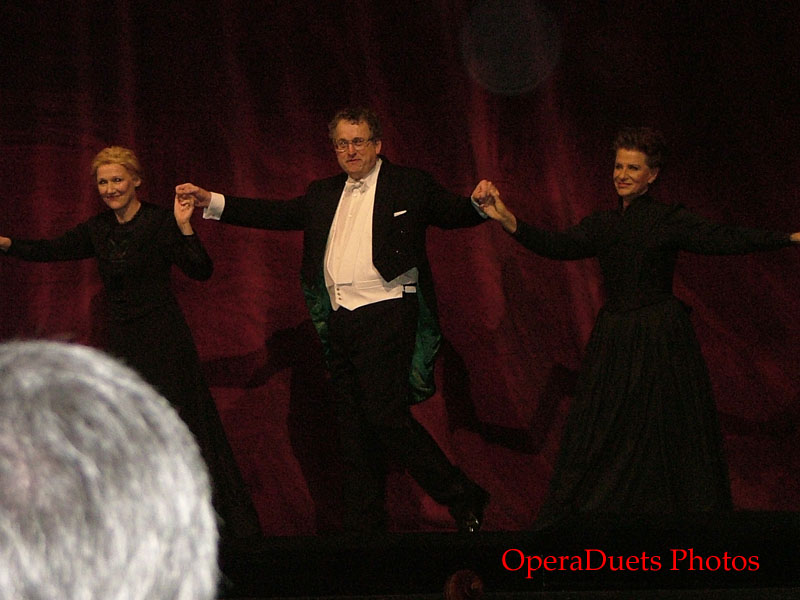The conductor Graeme Jenkins looked older, the tenors Marian Talaba and Jorma Silvasti looked fatter, but Agnes Baltsa and Angela Denoke was in great shape and lifted the opera up to the highest level. A debut as Old Burya, Marta Benackova, was greatly applauded in the Staatsoper, but I found her lacking in vocal authority. I saw Angela Denoke as Jenufa in 2002 and I found her good then but she was glorious now. Agnes Baltsa did was must be one of her best Kostelnicka's ever. She was in a fantastic vocal shape and her acting was as sharp as ever. Marian Talaba was Stewa and he did a good figure but I missed the oppulence of a Torsten Kerl in the role. Although Jorma Silvasti did another wonderful Laca performance I think that maybe Talaba should have been Laca Klemen and Silvasti Stewa Burya.
Jenufa is in 3 acts of approx 45 minutes each. Even as the opera ends in a higher and a positive note both act 1 and 2 ends in a tragic shock. Act 3 in the conclusion of a tragedy that was unavoidable but still the positive character of Jenufa gives the opera an end as if we have seen the paradise and the love of God that awaits us there. It is strange that I have seen this opera more times than one and still I was only just now so strongly aware of the religious content. Strange because the opera never hids its Catholic content.
Die alte Buryja = Marta Benachkova
Laca Kiemen = Jorma Silvasti
Stewa Buryja = Marian Talaba
Die Küsterin Buryja = Agnes Baltsa
Jenufa = Angela Denoke
Altgesell = Hans Peter Kammerer
Dorfrichter = Alexandru Moisiuc
Seine Frau = Donna Ellen
Karolka = Caroline Wenborne
Schäferin = Lydia Rathkolb
Barena = Juliette Mars
Jana = Anita Hartig
Tante = Maria Gusenleiter
Graeme Jenkins, conductor
Inszenierung - David Pountney
Bühnenbild - Robert Israel
Kostüme - Marie-Jeanne Lecca
Lichtgestaltung - Mimi Jordan Sherin
Choreographie - Renato Zanella
This page was last updated: June 20, 2022

